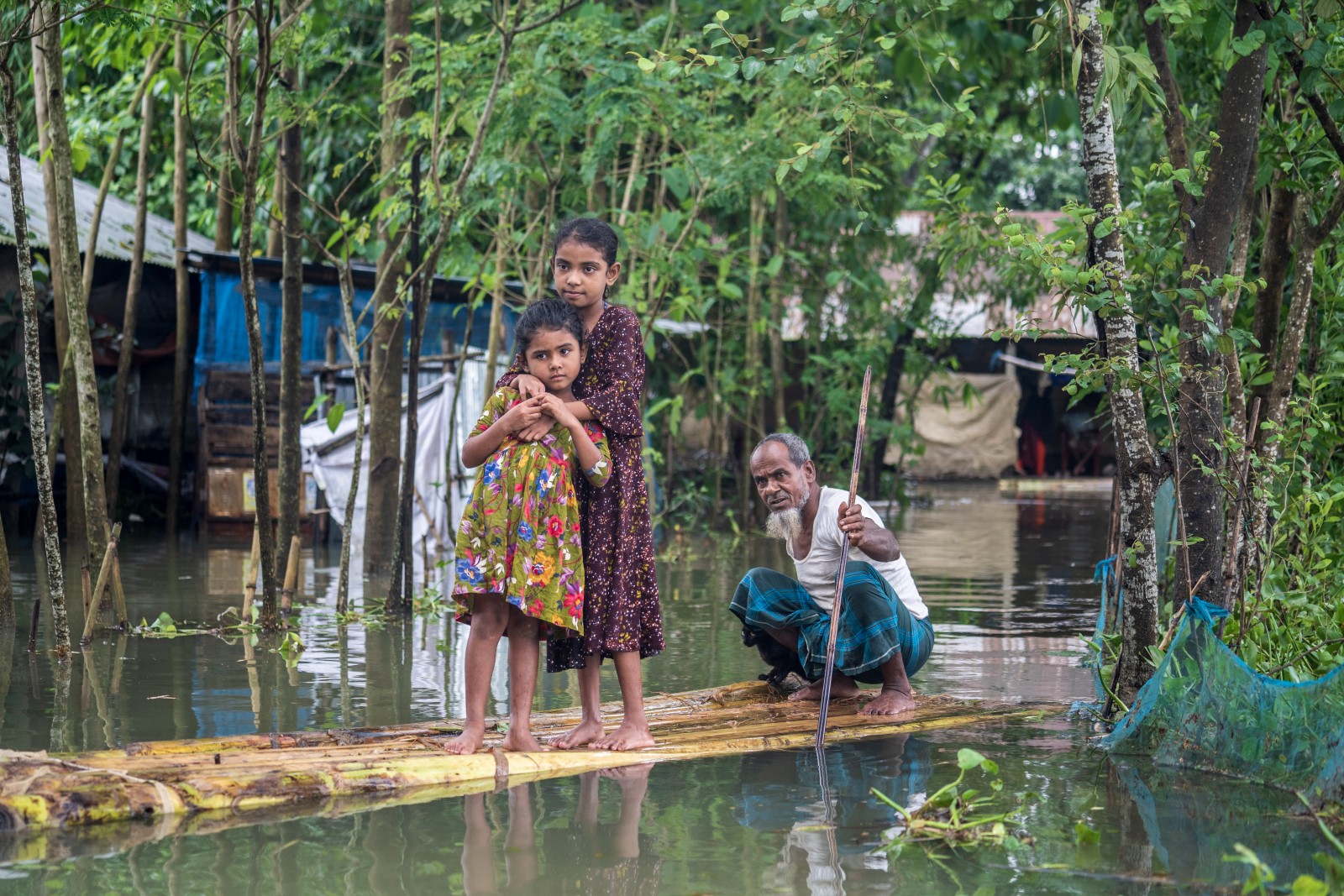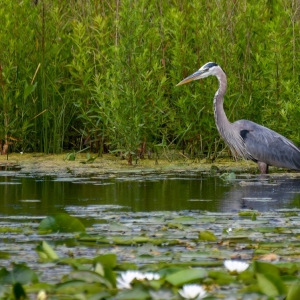The Stream, June 28, 2023: In Climate-impacted Bangladesh, Residents Adapt to ‘New Normal’ Floods, Drought, and Storms

Flooding in the Sylhet region of Bangladesh in 2022 displaced hundreds of thousands, many of them children. Photo © UNICEF/UN0658495/Muku
YOUR GLOBAL RUNDOWN
- Leaders in Uzbekistan are calling for the country to temper its agricultural sector’s ‘irrational’ use of water, one of the highest per capita in the world.
- Oman has announced the completion of 181 dams and dozens of sanitation facilities as it continues to seek foreign guidance in improving water security.
- In Bangladesh, where climate change is affecting water security for millions of people, residents are finding temporary solutions to grow, build, and sanitize.
- A new Shell oil spill, ‘one of the worst in the last 16 years,’ has contaminated a river and farmland in Nigeria’s Niger Delta.
A water emergency in Montevideo, Uruguay, has led to residents drinking salty water and workers drilling wells in parks.
“It’s unbearable because of the saltiness. Even pets avoid it.” – Carlos Santos, a member of the National Commission for the Defense of Water and Life and a lecturer in anthropology at the University of the Republic in Uruguay
The water levels of key reservoirs around Uruguay’s capital of Montevideo could be depleted as early as July — a ‘Day Zero’ scenario that led President Luis Lacalle Pou to declare a “water emergency for the metropolitan area.”
OSE, a public water utility, has been mixing salty estuary water with the freshwater reservoir in order to “stretch supplies,” after receiving an exception to surpass mandated salinity limits, CNN reports. Officials have reported high levels of “chlorides, sodium, and trihalomethanes” in the drinking water as well.
Scientists have found that the climate crisis is not the sole cause of the drought which fueled the water shortages, though they concur that climate change did play a role. Residents have continued protests, demanding their leaders be better prepared for such impacts.
In Context: HotSpots H2O: Day Zero Threatens Uruguay’s Capital
— Christian Thorsberg, Interim Stream Editor
Recent WaterNews from Circle of Blue
- HotSpots H2O: UN Condemns Violence Against French Water Defenders — The UN report, directed at French authorities, expresses concern about the use of force deployed against protesters western France.
- HotSpots H2O: Citing Dire Risk to Water and Communities, Groups Oppose Newmont’s Gold Mine in Haiti — They assert that mining would harm watersheds and pollute already scarce water reserves.
The Lead
Low-lying Bangladesh, a country of 170 million people, has “seven leaks” and “two hands,” Saber Hossain Chowdhury, a governing party lawmaker and the prime minister’s climate envoy, told the New York Times.
Climate-impacted weather patterns — including erratic precipitation leading to droughts and floods, coastal erosion, cyclones, and saltwater intrusion — have affected every inch of the country’s water sector, the Times reports. Millions of people are doing “whatever they can to keep their heads above it,” devising creative solutions that will nonetheless carry them only so far into the future.
“This matters to the rest of the world, because what the 170 million people of this crowded, low-lying delta nation face today is what many of us will face tomorrow,” the Times writes.
Farmers have abandoned unreliable shrimp harvesting, and moved to growing okra and tomatoes in compost, rather than soil. They are also rushing to harvest rice before heavy rains spur floods, and raising vegetables and other produce in “floating beds of water hyacinths,” which would be relatively unaffected by floodwaters.
As drinking water becomes more scarce along the coast, millions of people living in the countryside have moved inland to cities, creating an influx of migrants for whom the country has yet to build infrastructure or facilities. All the while, as saltwater moves further inland, the country’s natural protective mangrove barrier is dying — “Other mangrove species are taking over. The landscape is changing. Likely forever.”
This Week’s Top Water Stories, Told In Numbers
90
Percent of freshwater in Uzbekistan that is consumed by the country’s agricultural sector, Uzbek outlet Gazeta reports. The matter was recently addressed by Sen. Bory Alikhanov, who spoke on malfunctioning irrigation networks and outdated farming practices while discussing what he felt was the country’s poor resource management. “Water consumption per hectare in agriculture is two to two and a half times higher than in a number of countries,” Alikhanov said.
181
Number of dams recently built in Oman, in addition to its 63 underground feeders, 115 surface water storage facilities, and three protection dams, Muscat Daily reports. The country, one of the world’s most water-scarce, continues to face water security challenges as the World Bank warns of higher temperatures and dwindling, sporadic rainfall on the Arabian Peninsula in the years to come. The country’s use of desalination plants has more than doubled since 2021, and 61 percent of triple-treated water is used within the country, according to the Muscat Daily. Most of Oman’s freshwater comes from groundwater reserves.
On the Radar
A spill from a Shell oil pipeline in Nigeria’s Niger Delta — a region with an extensive history of drilling, accidents, and vandalism — has “contaminated farmland and a river, upending livelihoods in fishing and farming communities,” Al Jazeera reports. The extent of the spill has not yet been determined, though activists in the region are identifying it as “one of the worst in the last 16 years.” Photographs show the Okulu River black with oil — per reports, the spill lasted for over a week.
More Water News
Tropical Storms Bret and Cindy: Yale Climate Connections reports that, for the first time on record in June, two tropical cyclones are active east of the Caribbean at the same time — placing the Lesser Antilles, population 3.9 million, at risk.
Navajo Nation: The Supreme Court has ruled 5-4 that the federal government “had no obligation to supply water to the tribe,” Grist reports.
Christian Thorsberg is an environmental writer from Chicago. He is passionate about climate and cultural phenomena that often appear slow or invisible, and he examines these themes in his journalism, poetry, and fiction.







Leave a Reply
Want to join the discussion?Feel free to contribute!